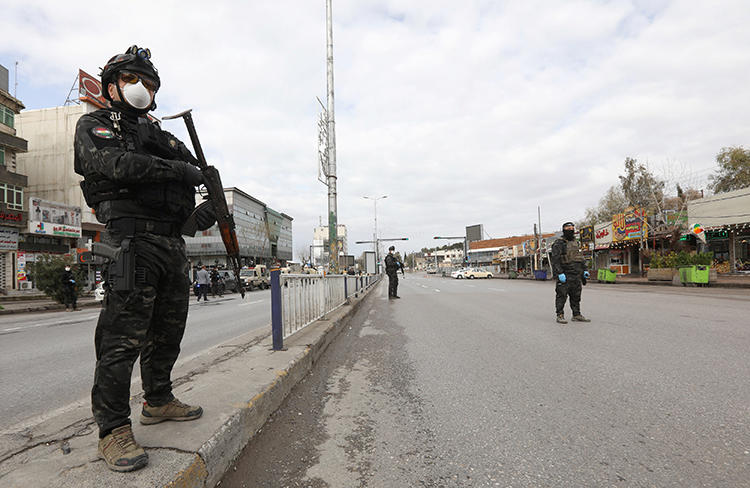New York, April 8, 2020 — Authorities in Iraqi Kurdistan should allow the NRT broadcaster to cover the COVID-19 pandemic freely, the Committee to Protect Journalists said today.
Yesterday, the Kurdistan regional government’s Health Ministry sent a letter to the attorney general requesting authorities close NRT and prevent it from broadcasting, according to a report from the broadcaster, NRT Director General Awat Ali, who spoke to CPJ via messaging app, and a report by the Metro Center for Journalists’ Rights and Advocacy, a local press freedom group.
The request was filed in response to an April 5 NRT report alleging that the regional government had inflated the number of COVID-19 deaths in Iraqi Kurdistan in order to discourage people from demonstrating in the streets, according to those reports.
NRT is owned by Saswar Abdulwahid Qader, a businessperson and leader of the opposition New Generation Party, and the broadcaster is known to be supportive of the party, according to news reports.
“Iraqi Kurdish authorities should reject the Health Ministry’s request to close NRT and allow the broadcaster to continue covering COVID-19 and other newsworthy events freely and without official harassment,” said CPJ Middle East and North Africa Representative Ignacio Miguel Delgado. “The authorities should encourage the open sharing of information about the pandemic, not threaten to censor or shutter outlets trying to find the truth.”
The Health Ministry letter, which was published by NRT, calls for strong legal action against the broadcaster, including its closure, and says it should be prevented from misusing statistics, because doing so could lead people to ignore the Health Ministry’s instructions.
Awat Ali told CPJ that NRT had not been directly told to close, and said he found out about the Health Ministry’s letter on the news. NRT continues broadcasting as of today.
After the publication of this article, Dindar Zebari, the Kurdistan Regional Government’s deputy minister for international advocacy coordination, acknowledged the Health Ministry’s letter in an email to CPJ, but said that the government had not taken any legal action against NRT and did not plan to do so.
In a separate incident in Iraqi Kurdistan on April 6, Kurdish Asayish security forces detained Zryan Mohamed, a freelance reporter for the independent news website Awene, for several hours in Sulaymaniyah, according to reports by Mohamed’s employer and the Metro Center, and Mohamed, who spoke to CPJ via messaging app.
He was detained over a story alleging that the Sulaymaniyah Chamber of Commerce had failed to implement adequate safety measures for the pandemic, according to those reports.
Mohamed told CPJ that he had received a phone call from the Asayish on April 5 asking whether he had produced the video report. When he said he had, Asayish summoned him for questioning at its headquarters in Sulaymaniyah.
When he went for questioning on April 6, authorities held him for several hours and made him sign a pledge saying he would no longer do that type of reporting, he said.
CPJ could not find contact information for the Asayish in Sulaymaniyah. CPJ emailed the Patriotic Union of Kurdistan, the political party that oversees the Asayish in that region, but did not immediately receive any response.
[Editors’ Note: This article has been updated in its seventh paragraph to include Zebari’s response to CPJ.]
